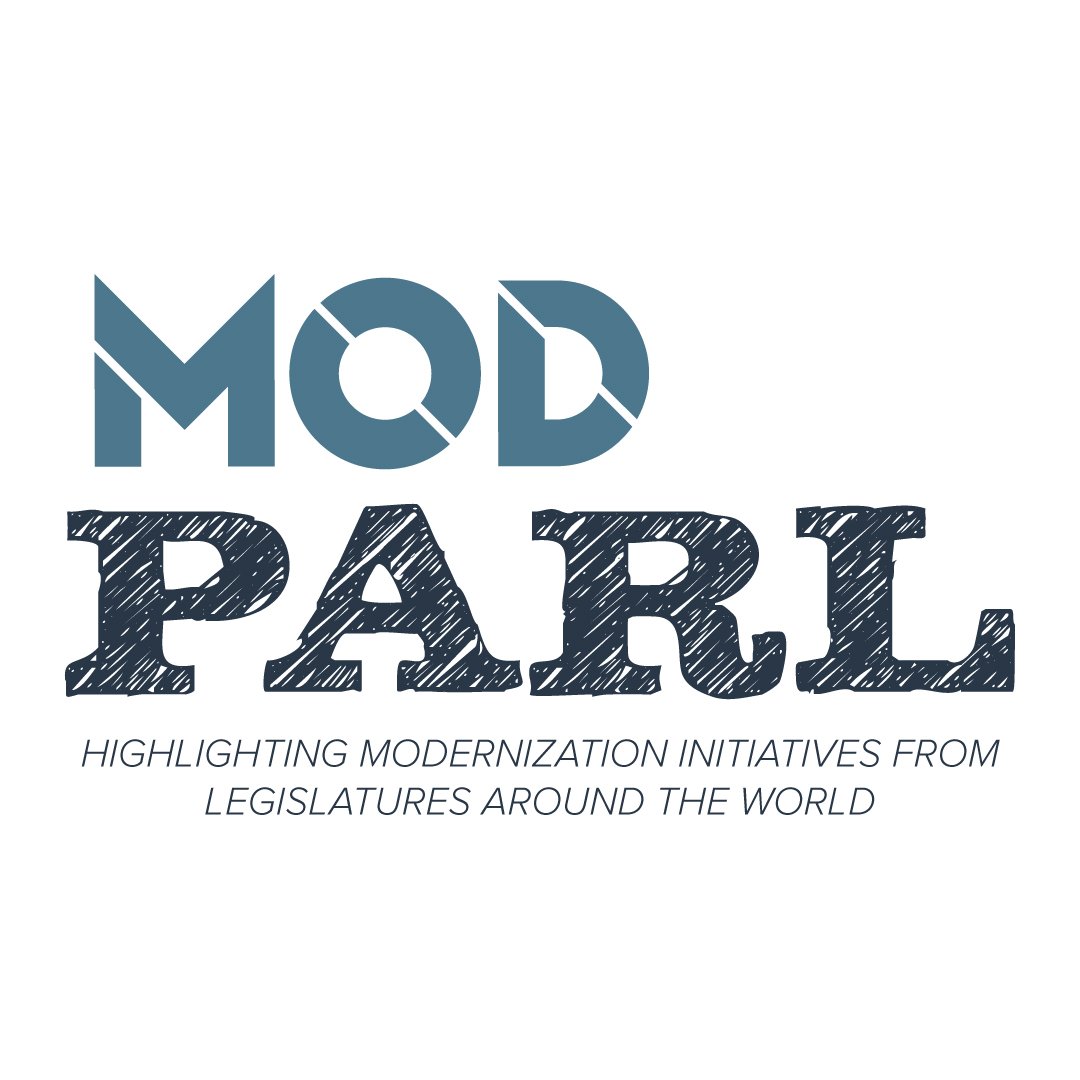
Parliaments as Living Information Systems
A global shift is underway as AI pushes parliaments to evolve from paper-bound institutions into fully digital, adaptive information systems. This post explores why past tech waves fell short, what today’s “pacing problem” means for democracy, and how coordinated international action can drive genuine digital transformation.

Congress in 2040?
A global summit on “AI for Parliaments” offered a glimpse of how legislatures might operate in 2040 — and why Congress risks slipping behind as peers race ahead. From international models of AI-enabled lawmaking and upcoming oversight deadlines to leadership transitions and new directives in House rules and appropriations, the latest Future-Proofing Congress breaks down what US lawmakers need to know to stay competitive in an accelerating tech era.

The Pebble and the Boulder: Five Futures for Legislatures in the Age of AI
A look at five plausible futures for legislatures in the age of AI — and why global parliamentary leaders are acting now to address the “pacing problem,” strengthen oversight, and ensure democratic institutions shape, rather than get shaped by, accelerating technology.

On Day Three: The Final Recommendations Shaping the Future of AI in Parliaments
On the final day of the Artificial Intelligence Conference in Kuala Lumpur, delegates adopted twelve early recommendations to guide responsible AI adoption in legislatures — from readiness assessments and governance frameworks to capacity-building, oversight, and shared learning across parliaments.

On Day Two: Parliaments Take Stock and Plan Next Steps on AI
The second day of the Artificial Intelligence Conference in Kuala Lumpur spotlighted early-stage experimentation, widening capacity gaps, and new tools like the IPU’s AI Maturity Framework as parliaments assess their progress and chart next steps for trustworthy AI adoption.

The Path Forward: Continuing the CAO's Legacy of Leadership
As Catherine Szpindor retires after reshaping the House’s modern infrastructure, Congress enters a high-stakes era where AI, post-Chevron demands, and decades of capacity loss make the next CAO appointment a generational decision for how effectively the institution can serve the American people.

On Day One: Are Parliaments Preparing for AI — or Being Pulled by It?
A firsthand look from Kuala Lumpur at how parliaments worldwide are grappling with the rise of AI — and whether they’re steering the technology or being swept along by it. Day one of the Artificial Intelligence Conference included global lawmakers debating future scenarios developed by the IPU and POPVOX Foundation, the urgent need to keep humans in the loop, and the promise of AI to free legislators for deeper public engagement.

The Future Won’t Slow Down, But Congress Can Get Ready
A special Thanksgiving edition of Future-Proofing Congress breaks down three frontier AI releases, the new federal “Genesis Mission,” and fast-moving tech trends reshaping policymaking — and offers practical ways staff can stay ahead.

Giving Thanks and Celebrating Wins
A look at bipartisan wins, new modernization funding, and fresh resources for Congressional staff as CapitolStrong relaunches after the shutdown — plus a December 3 thank-you event and updates on AI, casework tools, and federal workforce insights.

The Academic Edition
From the UK and Japan to Italy and beyond, a new wave of academic research is revealing how artificial intelligence is reshaping parliaments worldwide. The latest ModParl explores what AI means for trust, representation, and the human side of lawmaking.

The Spookiest Season of All
From managing casework and using AI wisely to boosting staff morale this spooky season, the latest Future-Proofing Congress features tips for staying effective during the government shutdown. Plus, insights on House Digital Services’ Case Compass, global AI trends, and upcoming Hill events.

When Legislators Meet AI
Inside the Athens Democracy Forum’s two-day Parliamentary Caucus on technology, trust, and the future of representation

Top 5 Rookie Mistakes to Avoid as a Legislative Staffer Using a GenAI LLM
Generative AI tools like ChatGPT, Claude, and Gemini can be powerful assistants for Congressional and Parliamentary staff — but only if used correctly. This guide breaks down five common mistakes legislative professionals make when using AI for research, drafting, and casework, and offers practical tips for getting accurate, useful results while maintaining sound judgment and oversight.

On Missing Imagination
Reflections from the Athens Democracy Forum on AI, democracy, and the courage to rethink political institutions

With Great Power Comes Great Responsibility
This month’s Future-Proofing Congress dives into staff safety, burnout, AI innovation, and small wins that keep the Hill moving forward.

Seeing Parliaments as Spaces and Places
This month’s Modern Parliament highlights global innovations in citizen engagement—from AI ministers and virtual parliaments to the new "Parliament as a Space and Place" guide, cookbooks, and more.

Innovation in Action: Highlights from the 2025 Congressional Hackathon
The 2025 Congressional Hackathon brought Members of Congress, staff, technologists, and students together at the US Capitol for a day of collaboration, big announcements, and inspiring solutions from the next generation of innovators working to modernize Congress.

The Promise of Politics in the Age of AI
At the Global Gathering in Portugal, voices from 144 countries explored AI accountability, digital democracy, and community-driven innovation as part of a renewed vision for politics in the age of AI.

POPVOX Foundation Launches “AI Summer Camp” for Congressional Staff
POPVOX Foundation’s AI Summer Camp aims to encourage Members of Congress and their staff to dedicate meaningful time to explore use cases of institutionally approved LLMs. The project addresses the gap between Congressional offices' curiosity about the benefits and risks of using AI capabilities and the practical challenge of finding time to explore this emerging technology while having fun along the way.

New Resources on AI-Adoption Change Management, Congressional Office AI Use Policies, and Creating Custom GPTs for the Legislative Workforce
New resources designed specifically to help House and Senate chiefs of staff and their teams navigate the responsible adoption of generative AI (GenAI) tools in their daily work.
